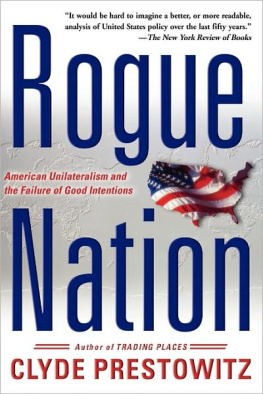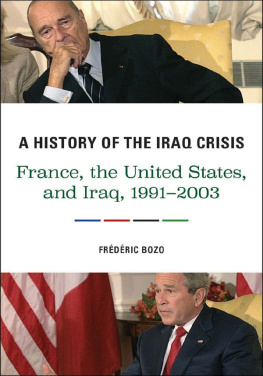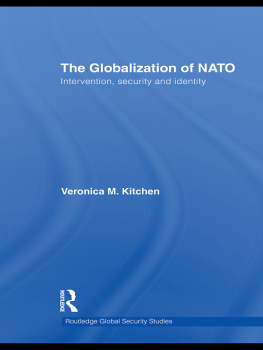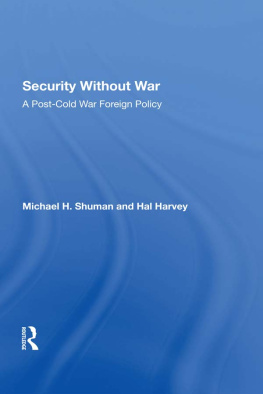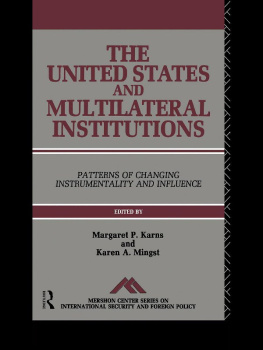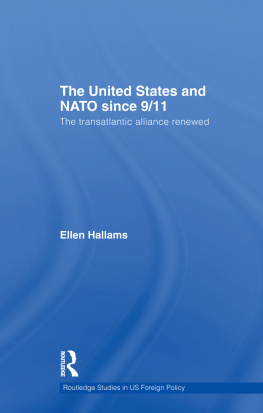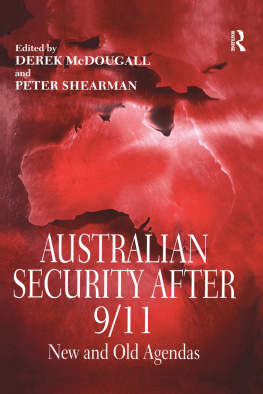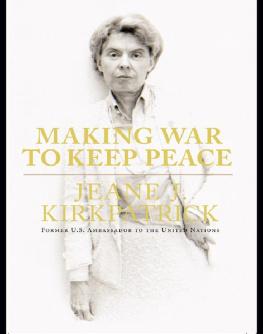Clyde Prestowitz
Rogue Nation
American Unilateralism and the Failure of Good Intentions
2003
Has America turned its back on the world? The term rogue nation, formerly reserved for outlaw countries, is increasingly applied to the United States-not only by enemies but by people and nations who have been steadfast friends. The litany is familiar to anyone who has ever read an op-ed page. In the six months before 9/11, the United States walked away from a treaty to control the world traffic in small arms, the Kyoto accord, a treaty to eliminate land mines, the Biological and Toxins Weapons Convention, and many other international agreements. After a brief flurry of coalition-building following the attack, the United States turned a cold shoulder to NATOs offers to assist with the invasion of Afghanistan, unilaterally terminated the Anti-Ballistic Missile Agreement with Russia, and actively opposed the creation of an International Criminal Court. Then came the war on Iraq, begun despite the clear refusal of the United Nations Security Council to authorize an invasion.
Unilateralism is as American as apple pie, and in Clyde Prestowitzs view, these actions do not signal a new U.S. hostility toward the rest of the world. On the contrary, our democratic ideals remain the hope of the world-but our allies increasingly see us as abandoning those ideals. Where we once defined our national self-interest in terms the whole world could embrace-favoring strong global institutions, due process, and the rule of law-we now seem to be thinking more narrowly in terms of our immediate military and economic security. Where we once supported international alliances such as NATO and the United Nations, we now deem those institutions irrelevant or even a hinderance.Where we once contained our foes, we now launch preventive attacks on potential threats. More and more, we act alone, with little regard for, or even awareness of, the needs and goals of other nations.
Rogue Nation is not an argument against American dominance or the exercise of American power. Its an argument against stupidity, arrogance and ignorance in the exercise of power. Prestowitz explores the historical roots of the unilateral impulse and shows how it now influences every important area of American foreign policy: trade and economic policy, arms control, energy, environment, agriculture. In every area, he argues, a multilateral approach, consistent with our humane and liberal core values, is also in our long-term best interests.
1
At Odds with the World and Ourselves
Rogue, adj. No longer obedient, belonging or accepted, not controllable or answerable; deviant, having an abnormally savage or unpredictable disposition.
Websters Encyclopedic Unabridged Dictionary
Consider that wee shall be as a titty upon a hill, the eies of all people upon us.
Governor John Winthrop
T he title of this book is purposely provocative. So let me hasten to emphasize that I in no way mean to equate the United States with Saddam Husseins Iraq or any other brutal, dictatorial regime. Indeed, I have always preferred to think of my country as the citty upon a hill, if sometimes a bit more cloudy than shining. No, what troubles me, and has inspired my title, is that increasingly large numbers of people abroad, including many longtime friends of America, are beginning to see us, if not exactly like Saddam or other brutes, certainly as, in the words of Websters dictionary, no longerbelonging, not controllable or answerable, and with an unpredictable disposition. In fact, todays (Monday, February 24, 2003) Washington Post carries a front page story saying that many people in the world consider President George W. Bush a greater threat to world peace than Saddam. Nor is this a recent development resulting from the debate over what to do about Iraq. Listen to the Guardian of London: America, the indispensable nation, begins to resemble the ultimate rogue state. Instead of leading the community of nations, Bushs America seems increasingly bent on confronting it. Instead of a shining city on a hillcomes anationalistic jingle: we do what we wantand if you dont like it, well, tough. That was not written yesterday, but in the spring of 2001 at the time of the U.S. rejection of the Kyoto treaty to control global warming.
It was at that time that I was beginning to discover the depth and rapidly expanding extent of the foreign alienation from America in a series of trips during which I interviewed leaders around the world. In fact, I was on the last leg of one of these trips when, at 3:45 P.M. on September 10, 2001, I heard the last call for the four oclock plane from San Francisco to Washington Dulles and quickened my pace. This was the last afternoon flight before the dreaded red eye. I was tired and not feeling well and didnt want to miss it. So I ran and ducked into the Boeing 777 just as the door was closing. My travels had taken me to Tokyo, Singapore, Jakarta, and Honolulu for a series of conferences and interviews dealing with globalization and Americas role in the world. As a sometime resident abroad and head of a foreign policy research institute, I had become uneasy with what I had been reading and hearing about widening gaps between America and its longtime friends.
The trip had not laid my concerns to rest. The picture of America as seen from abroad was increasingly ugly. In Asia, as previously in Europe and Latin America, I had heard rising criticism and even fear of a United States that was often at odds with the rest of the world as well as with its own professed ideals. Recent American moves withdrawing from the Anti-Ballistic Missile treaty, accelerating deployment of a national missile defense, and declaring China a strategic competitor had raised fears of a new Cold War. In addition, the gospel of economic globalization preached by the United States had, in the eyes of many Asians, been found wanting in the financial crisis of 1997-1998. Developing countries in Asia and Latin America suffered devastation while American hedge funds and banks escaped unscathed. Some had even begun to see globalization as a new form of imperialism. I had also heard criticism of Americas unilateralist tendencies, as evidenced by its rejection of both the Kyoto Treaty to control global warming and the international treaty banning use of landmines in the face of nearly universal ratification by other countries, including all of Americas traditional allies and friends.
As I hurried home and brooded over these and other criticisms, momentous events with which we are now unfortunately all too familiar were in train that would dramatically escalate these questions of Americas role and behavior in the world. As my plane lifted off from San Francisco International Airport, two obscure visitors to the United States, Mohammed Atta and Abdul Aziz Al-Omari, drove from the Milner Hotel in downtown Boston to a Comfort Inn in South Portland, Maine. Meanwhile, a National Security Directive calling for military and intelligence operations against one Osama bin Laden and an organization called Al Qaeda continued to sit on National Security Adviser Condoleeza Rices desk awaiting presidential approval. I arrived at Washingtons Dulles airport at about 12:30 A.M. on the morning of September 11 and drove home as Atta, Al-Omari, and their friends slept.
At about 9:15 A.M. I groped for the ringing phone, thinking it was my assistant Sonjai Harrison, calling to tell me shed gotten me an early doctors appointment. It was Sonjai, but she wasnt calling about the doctor. Turn on your television, she commanded. After the initial horror, I couldnt help but think that the alienation had gone much further than I realized.
At a press conference shortly after the attacks, President George W. Bush was asked, Why do they hate us? The they in the question were the terrorists and their backers, including what were being called rogue nations and what Bush subsequently labeled the Axis of Evil. The immediate answer to the question, however, came from a different, far more important and far more numerous they who demonstrated dramatically that, far from hating, they
Next page
